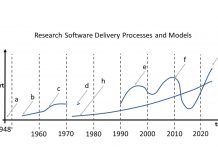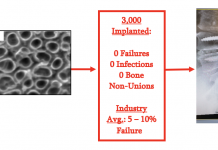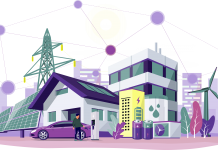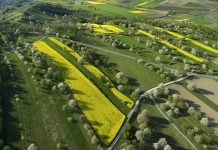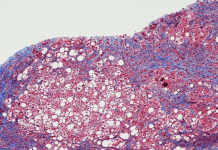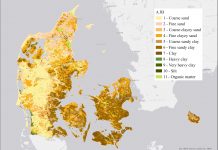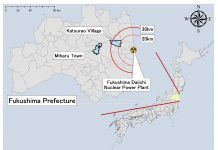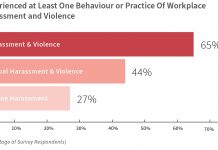Open Access Government produces compelling and informative news, publications, eBooks, and academic research articles for the public and private sector looking at health, diseases & conditions, workplace, research & innovation, digital transformation, government policy, environment, agriculture, energy, transport and more.
Home 2024
Archives
Computing: Paradigm shifts, adoption, new digital professionals rising
Dr Joanna Leng, School of Computing, University of Leeds, UK and Dr Phillip Brooker, School of Sociology, University of Liverpool, Emeritus and Prof Wes Sharrock, School of Sociology, University of Manchester, focus on computing: paradigm shifts, charting the adoption and the rise of new digital professions.
Opinion: Do universities help or hurt innovation?
Do Universities help or hurt innovation? Find out in this 25-year academic entrepreneur’s anecdotal perspective of starting companies and developing implants. Thomas J. Webster shares his opinion here.
The future of AVS, dizziness and vertigo in emergency departments: Part I. Towards a...
In this first of five articles, Dr Millie Nakatsuka discusses the socio-economic implications associated with the diagnosis of acute vestibular syndrome and why more cost-effective and sustainable approaches are needed.
Sensory roles in reading skills: The print-to-speech model
While it is easy to recognise the necessary role that vision plays in reading, it is important to know that many other senses contribute to the acquisition, refinement and maintenance of reading skills including sound, touch and motor coordination, to name just a few.
Removing carbon dioxide from the atmosphere
The agricultural sector plays a decisive role in tackling climate change. GERICS explores what actors of the agricultural sector think of removing carbon dioxide and what support they need from science.
Nutritional management of aging pets
Morgan A. Key from Hill’s Pet Nutrition outlines the changes associated with aging pets and how nutrition can help.
Adaption solutions for improved climate change resilience
Patricia Carbonell, RESIST Communication Contact at REVOLVE – Communicating Sustainability, discusses adaptation solutions for improved climate change resilience in European regions.
Smarter energy for a green and sustainable energy transition
Tietoevry, a leading technology company with a strong Nordic heritage and global capabilities, spearheads the implementation of innovative solutions for a sustainable energy transition.
Building resilience: Key to protecting adolescent mental health
Essi Viding, Pasco Fearon, Tom Wu, Alexander Lloyd, Laura Lucas, Roslyn Law, and Jaime Smith discuss new approaches to preventing adolescent mental health problems from emerging.
Business and human rights in Japan: Progress and challenges of the Japanese government
Professor Emi Sugawara from Osaka University of Economics and Law, Faculty of International Studies, discusses government’s efforts to respect human rights in the supply chain.
Lessons from Libby: Understanding the impact of asbestos exposure
Jean C. Pfau, Scientific Consultant at the Center for Asbestos Related Disease, shares the devasting story of asbestos exposure occurring in a Rocky Mountain town of Montana and the critical lessons that can be learned from this event.
Sepsis Canada: Building a national research network for sepsis awareness
Sepsis is a life-threatening condition estimated to affect 49 million people annually worldwide; yet it is not widely understood. In this article, we hear how Sepsis Canada is working to promote sepsis awareness through supporting research, public education, and cross-disciplinary training.
Bio-based solutions for a circular economy
Principal Scientist Ulla Forsström from the VTT Technical Research Centre of Finland Ltd tells us about the INN-PRESSME Open Innovation Test Bed project, which aims to develop novel, sustainable and recyclable bio-based solutions to replace fossil-based plastic.
Empowerment through education: Sexual assault resistance programs for girls and young women
Charlene Y. Senn and Sara E. Crann from the University of Windsor discuss the importance of sexual assault resistance programs in equipping girls and young women with the knowledge and skills to reduce the risk of sexual assault.
Green infrastructure for ecosystem resilience
Mita Drius and Luana Silveri from the Free University of Bozen-Bolzano, explain fostering green infrastructure for ecosystem resilience in Alpine regions. The FRACTAL model, we hear, is a bottom-up all-round approach.
Chronic organ damage: Understanding fibrosis
Fibrosis was once considered irreversible, resulting from chronic organ damage; Ken-Ichi Kobayashi from Notre Dame Seishin University tells us why the possibility of treatment to reverse the disease is gaining attention.
Decarbonising the steel industry: Reasons to be cheerful
Filip Johnsson, Lisa Göransson and Alla Toktarova, explain why decarbonising the steel industry gives us reasons to be cheerful.
Revolutionizing agriculture: Unleashing the potential of AI and big data in soil health monitoring
In a recent interview, our editors delved into the world of soil health monitoring and the transformative role played by artificial intelligence (AI), big data, and machine learning, with Mogens H. Greve, Professor and Head of the Soil Section at the Institute of Agroecology, Aarhus University.
Prolonged impact of the Fukushima Nuclear Power Plant Accident on health and society
Naomi Ito, Research Assistant at the Fukushima Medical University, tells us how the 2011 Fukushima Daiichi Nuclear Power Plant Accident impacted and continues to impact local residents.
Confronting harassment and violence in Canadian workplaces: Insights and evolutions
Dr. Adriana Berlingieri, Research Associate and Barb MacQuarrie, Community Director at the Centre for Research & Education on Violence Against Women & Children in Canada, discuss the prevalence and impact of harassment and violence in the workplace.

